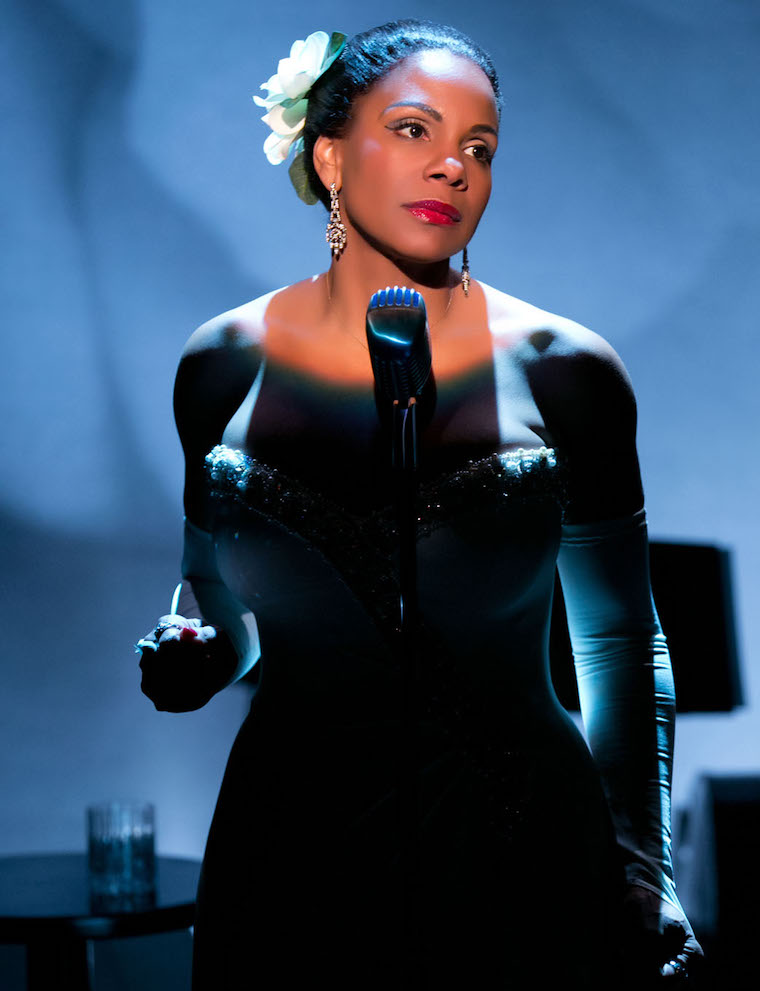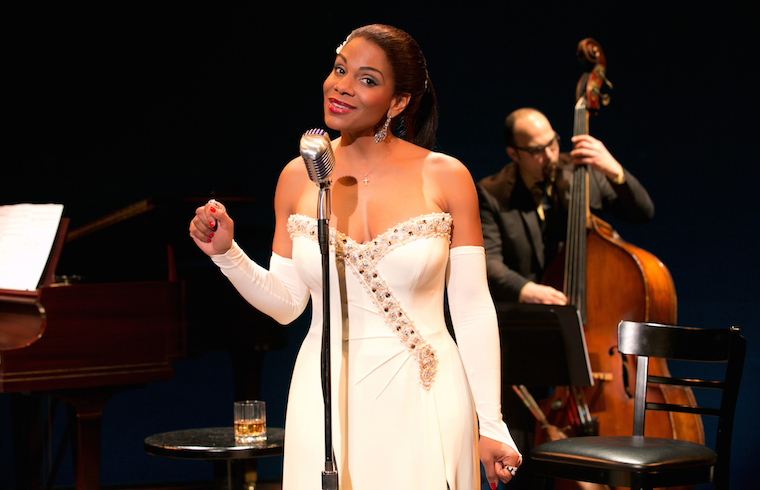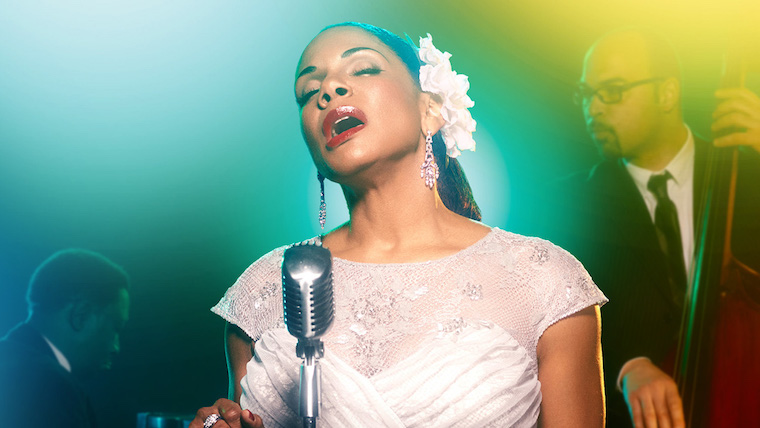The very first time I saw Audra McDonald on stage was in the brilliant ‘Master Class’ with Zoe Caldwell. Back then, in the long-ago 90’s, she played a supporting role to an imperious diva – Maria Callas – yet she absolutely stole the show with a purity and grace and innocence that was both beguiling and beneficent. As written by Terrence McNally, it was Ms. Caldwell’s tour-de-force, but Ms. McDonald’s talent could not be ignored, and she won a Tony for the turn.
The next time I saw Audra McDonald was in the original run of ‘Ragtime‘ – for which she also won a Tony (which was quickly becoming a good habit). Her voice lifted that production, and as much as it was an ensemble piece, she managed to shine and hit the high notes that confirmed her break-out status.
Since then she’s won a few more Tony Awards, but I didn’t get the chance to see her again until HBO broadcast her stunning turn as Billie Holiday in a recording of ‘Lady Day at Emerson’s Bar & Grill’ – and what a revelation it was. As I was watching, I was struck by a certain full-circle moment wherein Ms. McDonald had taken the proper lead role that mirrors the monstre sacré to which she had to be subservient in her ‘Master Class’ role. In this production, it is McDonald who plays the diva, and she does it with the fiery exhibition and subtle devastation that makes a Broadway play strike to the very heart of the human spirit. When she slams down the piano cover or fills her own cocktail glass with ice and liquor, she completes the transformation into the iconic status she merely flirted with in ‘Master Class.’ It is a gratifying promise perfectly kept.
This is a mesmerizing performance, punctuated by the brilliant rendition of Ms. Holiday in which McDonald not only inhabits her voice and mannerisms, but takes it to a searing, desperate and doomed emotional level wherein fear and adulation and the ultimate craft of an artist’s brilliance collides with her subject’s iconography. It would be easy to emulate and imitate, but McDonald goes wondrously beyond such mimicry: she becomes Holiday in a way that resurrects her history, and offers both redemption and condemnation. There is truth in that, and courage, and an amazing show that’s as difficult to witness as it necessary for the soul.
Back to Blog


